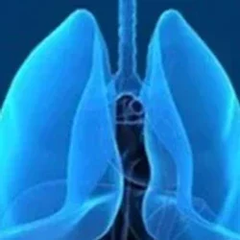
Dr. Fidler on the Potential Utility of ctDNA to Inform Treatment Escalation in Lung Cancer
Mary Jo J. Fidler, MD, discusses the potential utility of circulating tumor DNA to inform treatment escalation in lung cancer.
Episodes in this series

Mary Jo J. Fidler, MD, associate professor, Department of Internal Medicine, Division of Hematology, Oncology and Cell Therapy, Rush Medical College, Rush University Medical Center, discusses the potential utility of circulating tumor DNA (ctDNA) to inform treatment escalation in lung cancer.
Biomarkers, such as ctDNA, could be utilized to tailor treatment intensification to patients with more aggressive disease, says Fidler. Once-a-day oral TKIs are more convenient for patients compared with oral TKIs plus intravenous antiangiogenic agents or cytotoxic chemotherapy, Fidler explains.
As such, ctDNA clearance could be used to inform which patients require treatment intensification and which patients can to remain on single-agent TKIs without disease progression, Fidler concludes.
















































